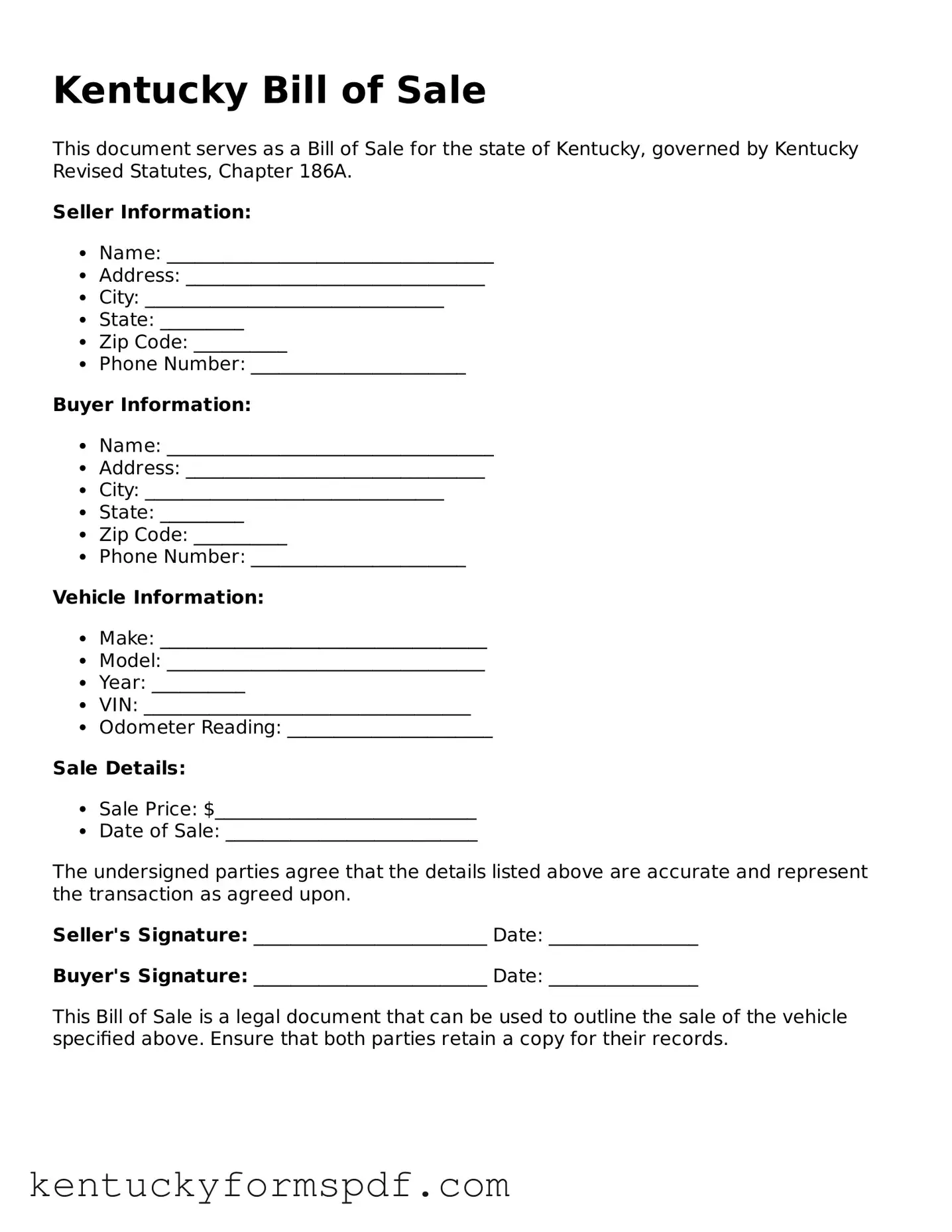What is a Kentucky Bill of Sale form?
A Kentucky Bill of Sale form is a legal document that records the transfer of ownership of personal property from one party to another within the state of Kentucky. This form serves as proof of the transaction and outlines the details of the sale, including the names of the buyer and seller, the description of the item, and the sale price.
When do I need a Bill of Sale in Kentucky?
You need a Bill of Sale whenever you buy or sell personal property, especially for items like vehicles, boats, or trailers. While it’s not always legally required for smaller items, having a Bill of Sale can help protect both the buyer and seller by providing a record of the transaction.
What information should be included in a Kentucky Bill of Sale?
A comprehensive Bill of Sale should include the names and addresses of both the buyer and seller, a detailed description of the item being sold (including make, model, year, and VIN for vehicles), the sale price, and the date of the transaction. Additionally, both parties should sign the document to validate the sale.
Is a Bill of Sale legally binding in Kentucky?
Yes, a Bill of Sale is legally binding in Kentucky as long as it is properly completed and signed by both parties. It acts as a contract that can be enforced in court if necessary. However, it’s always wise to ensure that the document is clear and complete to avoid any disputes later on.
Do I need to have the Bill of Sale notarized?
Notarization is not required for a Bill of Sale in Kentucky, but having it notarized can add an extra layer of protection. It provides a record that the signatures are authentic and can help prevent disputes regarding the validity of the transaction.
Can I use a generic Bill of Sale form in Kentucky?
Yes, you can use a generic Bill of Sale form in Kentucky, but make sure it includes all necessary details specific to your transaction. It’s often beneficial to use a form tailored to Kentucky laws to ensure compliance and completeness.
What if I lose my Bill of Sale?
If you lose your Bill of Sale, it’s important to act quickly. You can often obtain a copy from the other party involved in the transaction. If that’s not possible, consider drafting a new Bill of Sale that includes a statement acknowledging the previous sale and providing all relevant details.
Where can I obtain a Kentucky Bill of Sale form?
You can find Kentucky Bill of Sale forms online through various legal websites or download templates from state government resources. Additionally, local offices that deal with vehicle registrations or legal documents may have forms available for you to use.

